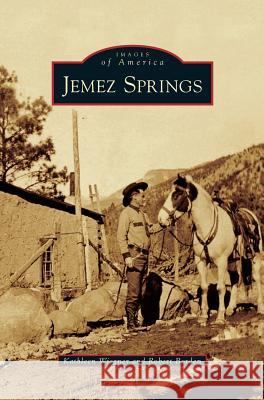Jemez Springs » książka
Jemez Springs
ISBN-13: 9781531646257 / Angielski / Twarda / 2009 / 130 str.
In 1849, James Hervy Simpson, a lieutenant and engineer in the Army Corps of Topographical Engineers, was ordered to survey a wagon road as a southern alternative to the Santa Fe Trail from Fort Smith, Arkansas, to Santa Fe, New Mexico. Simpson hired two brothers, Edward "Ned" and Richard Kern, to provide survey sketches that included the pueblo ruins of Giusewa and natural hot springs of Ojo Caliente, which are known today as Jemez Springs. Prior to incorporation in 1955, Jemez Springs, like many frontier towns, was supported by ranching, logging, and mining. It also had an influx of tourists who enjoyed the hot springs or one of the many dude ranches in the area. In 1995, Jemez Springs won an award as an All-America City from the National Civic League, and with a mere 375 residents at the time, it was one of the smallest communities to earn the honor.
In 1849, James Hervy Simpson, a lieutenant and engineer in the Army Corps of Topographical Engineers, was ordered to survey a wagon road as a southern alternative to the Santa Fe Trail from Fort Smith, Arkansas, to Santa Fe, New Mexico. Simpson hired two brothers, Edward "Ned" and Richard Kern, to provide survey sketches that included the pueblo ruins of Giusewa and natural hot springs of Ojo Caliente, which are known today as Jemez Springs. Prior to incorporation in 1955, Jemez Springs, like many frontier towns, was supported by ranching, logging, and mining. It also had an influx of tourists who enjoyed the hot springs or one of the many dude ranches in the area. In 1995, Jemez Springs won an award as an All-America City from the National Civic League, and with a mere 375 residents at the time, it was one of the smallest communities to earn the honor.











